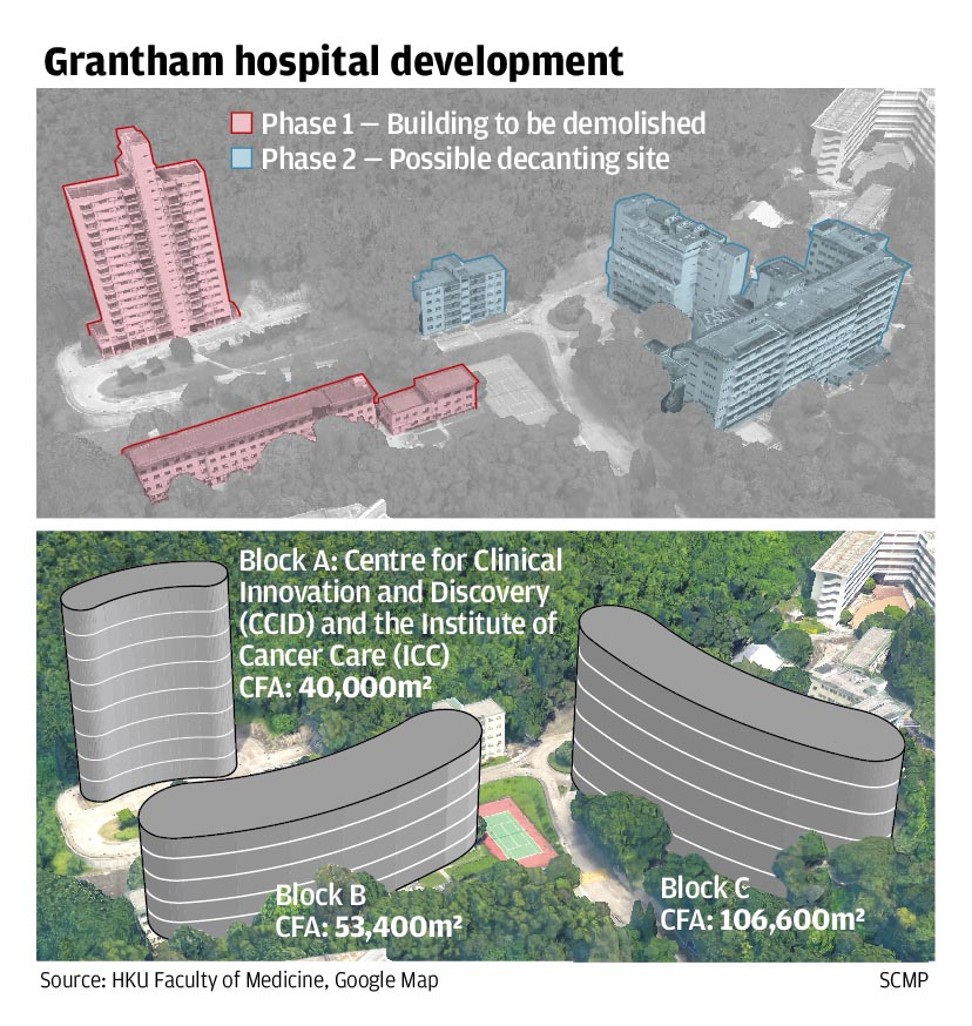
Hong Kong’s first cancer centre to provide advanced treatments for city’s biggest killer
Professor says new facility in 2025 will close the gap in waiting time for latest therapies and drugs, and provide emotional support to sufferers and caregivers
Cancer patients in Hong Kong will receive more advanced and timely treatments once the city’s first cancer centre begins operations in eight years, the head of the billion-dollar project has said.
“In future, patients can benefit from laboratory discoveries directly,” Professor Gabriel Leung, dean of the medicine faculty at the University of Hong Kong, said.
The project, made possible with a HK$1.24 billion donation from the Hong Kong Jockey Club, will redevelop the public Grantham Hospital into the city’s first comprehensive cancer centre.
HKU’s new ultra-fast laser technology could slash cancer diagnosis times
Facilities comprise a top-notch therapy base, clinical research hub as well as a facility providing psychological support for sufferers and their caregivers.
It will close the existing gap where cancer patients have to wait years before they receive innovative therapy identified in laboratories.
“Once a researcher achieves a medical breakthrough, or when a new therapy from an international conference is learned, it can be applied on local patients,” Leung said.
Cancer is the number one killer disease in Hong Kong, claiming about 13,800 lives a year.
But Leung said local experts currently go through a lot of red tape before being able to administer any new form of therapy. It may take years for the Hospital Authority to review the cost effectiveness of a new medicine before deciding to put it on the endorsed drugs list.
We should offer the right treatment to the city’s issues [regarding cancer patients]. The faculty’s vision is Hong Kong’s vision,” Leung said.
The project, expected to be completed by 2025, will become part of the government’s HK$200 billion blueprint to revamp the city’s public hospitals.
Under the plan, the main block of the 60-year-old Grantham Hospital, the doctors’ residence unit, as well as a lower block with a basketball court will be torn down.
Scientists discover protein suppression method that may fight cancer
The new structures in place will comprise a three-block complex, housing the city’s first public cell-based treatment facility in the Centre for Clinical Innovation and Discovery (CCID) as well as the Institute of Cancer Care (ICC). Both centres will tend to 223,000 patients and their carers.
The whole project will require a total of 890 scientists, professors and laboratory technicians to operate and plans are already in place to hire at least three top overseas experts renowned for their work in fields such as radiotherapy and immunology.
Leung hoped that the new centre would continue to focus on HKU’s strengths in cancer research on the liver, colon, and breast, as well as to further develop research on lung cancer.
The ICC will provide psychological services for patients and their carers upon diagnosis – a revolutionary model currently absent in the public health care system.
But Leung declined to comment on whether the project had difficulties looking for talent given the manpower shortage in the medical sector.
He said it would be up to the government to develop a long-term policy to cater to the increasing health care demand from the ageing population.
The donation given to the project is the largest single donation in HKU’s 105-year history.


